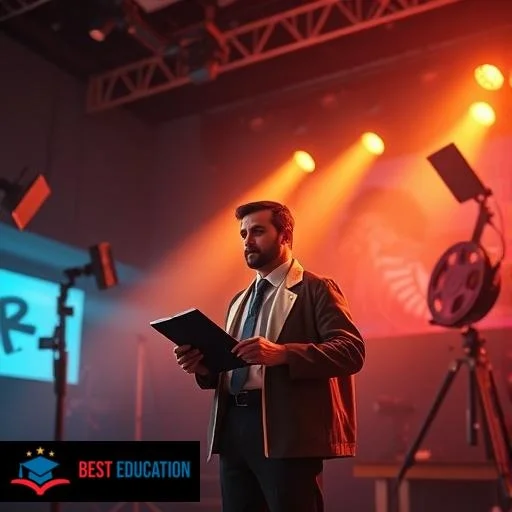Education is often regarded as the key to unlocking a brighter future. But what does it truly mean to receive the Best Education? It’s not just about acquiring knowledge; it's about gaining the skills, values, and mindset necessary to thrive in an ever-changing world. In today’s globalized society, the term "Best Education" encompasses more than just academic success—it includes personal growth, emotional intelligence, creativity, and the ability to adapt.
In this blog post, we will delve into the concept of the best education, explore its core principles, and discuss how different systems around the world are evolving to meet the needs of modern learners. We will also examine the factors that contribute to an education that nurtures both intellect and character, helping individuals not only succeed in their careers but also contribute positively to society.
The foundation of any great educational system lies in its ability to foster curiosity, critical thinking, and lifelong learning. These qualities are more important than ever in a time where technology, global interconnectedness, and rapid change are reshaping the landscape of work and society. To truly offer the best education, schools and institutions must prepare students not just for the jobs of today but also for the challenges and opportunities of tomorrow.
At its core, the best education should be holistic. It should not focus solely on academic performance but also on developing soft skills such as communication, problem-solving, and leadership. Emotional intelligence (EQ) is just as important as intellectual intelligence (IQ). Research shows that individuals with higher emotional intelligence tend to be more successful in their personal and professional lives. The best education helps students develop both cognitive and emotional skills, ensuring they are well-rounded individuals capable of thriving in complex and dynamic environments.
One of the key aspects of the best education is the ability to adapt to different learning styles. People learn in different ways—some are visual learners, others are auditory, and some learn best through hands-on experience. A rigid, one-size-fits-all approach to education can stifle creativity and hinder learning. The best educational systems recognize and embrace these differences, offering personalized learning experiences that cater to the unique needs of each student. Whether through technology, differentiated instruction, or project-based learning, students should be given the tools they need to succeed in a way that works best for them.
Another important element is the integration of technology. In the modern world, technology plays an integral role in almost every field. From healthcare to business, technology is changing the way we work and live. A truly exceptional education system incorporates technology not just as a subject but as a tool to enhance learning and teach students how to use technology effectively and responsibly. This includes teaching digital literacy, coding, and problem-solving using technology. Moreover, technology provides access to information and resources that can help level the playing field for students from all walks of life.
In addition to technology, experiential learning is another crucial element of the best education. This type of learning goes beyond textbooks and classroom lectures. It emphasizes learning by doing—whether through internships, community service projects, travel, or hands-on workshops. Experiential learning allows students to apply their knowledge in real-world contexts, deepening their understanding and helping them develop practical skills that are essential in the workforce. It also helps build confidence, encourages teamwork, and fosters a sense of responsibility and leadership.
Moreover, fostering creativity is a significant part of the best education. In today’s world, creativity is an invaluable asset, whether you’re an entrepreneur, scientist, artist, or teacher. Creativity fuels innovation and problem-solving, two skills that are indispensable in the modern workforce. Schools should encourage creative thinking and provide opportunities for students to explore their passions, whether it be through the arts, music, literature, or design. Encouraging creative expression allows students to think outside the box and tackle problems in innovative ways.
Additionally, education should be accessible to all. The best education systems recognize that every student, regardless of their background, should have access to high-quality learning opportunities. This means ensuring that education is not just a privilege for the wealthy but a right for everyone. Whether through government-funded initiatives, scholarships, or affordable online platforms, providing equitable access to education helps close the gap between different socio-economic groups and empowers individuals to rise above their circumstances.
Another aspect of the best education is the focus on global awareness and cultural understanding. In a world that is becoming increasingly interconnected, it is essential for students to have a global perspective. The ability to understand and appreciate different cultures, perspectives, and ideas is a vital skill in fostering cooperation and peace in an increasingly diverse world. The best education encourages students to be curious about the world around them, fosters empathy, and prepares them to become active global citizens who can navigate the complexities of our shared future.
While academic achievement remains an important metric, the best education also nurtures the emotional and psychological well-being of students. Mental health issues are becoming more prevalent among young people, and schools are increasingly recognizing the importance of providing support. A healthy mind is crucial for optimal learning, and education systems must prioritize the well-being of students by offering counseling, mental health resources, and programs that promote emotional resilience. Ensuring that students are supported in their mental health journeys enables them to focus on their studies and personal development without being hindered by emotional distress.
The role of teachers is paramount in the best education system. Educators are not just instructors—they are mentors, guides, and motivators who help shape the next generation of thinkers, creators, and leaders. To provide the best education, teachers must be equipped with the tools and training they need to succeed. This includes not just subject matter expertise but also the ability to connect with students, understand their needs, and adapt their teaching methods to engage diverse learners. Continuing professional development and a supportive work environment are essential to ensuring that teachers can perform at their best.
In conclusion, the best education is a dynamic, multifaceted concept that goes beyond traditional classroom learning. It is about developing well-rounded individuals who are capable of thinking critically, communicating effectively, and navigating an increasingly complex world. The best education systems foster creativity, emotional intelligence, and adaptability, preparing students for a future that is uncertain yet full of opportunities. By focusing on accessibility, equity, and global awareness, education can truly become a transformative force that empowers individuals and societies alike.
Ultimately, the best education is not just a goal to be achieved but a lifelong journey of growth, learning, and self-discovery. It requires a collective effort from educators, students, parents, and communities to create an environment where everyone has the opportunity to thrive and reach their full potential. In today’s world, this is more important than ever.





